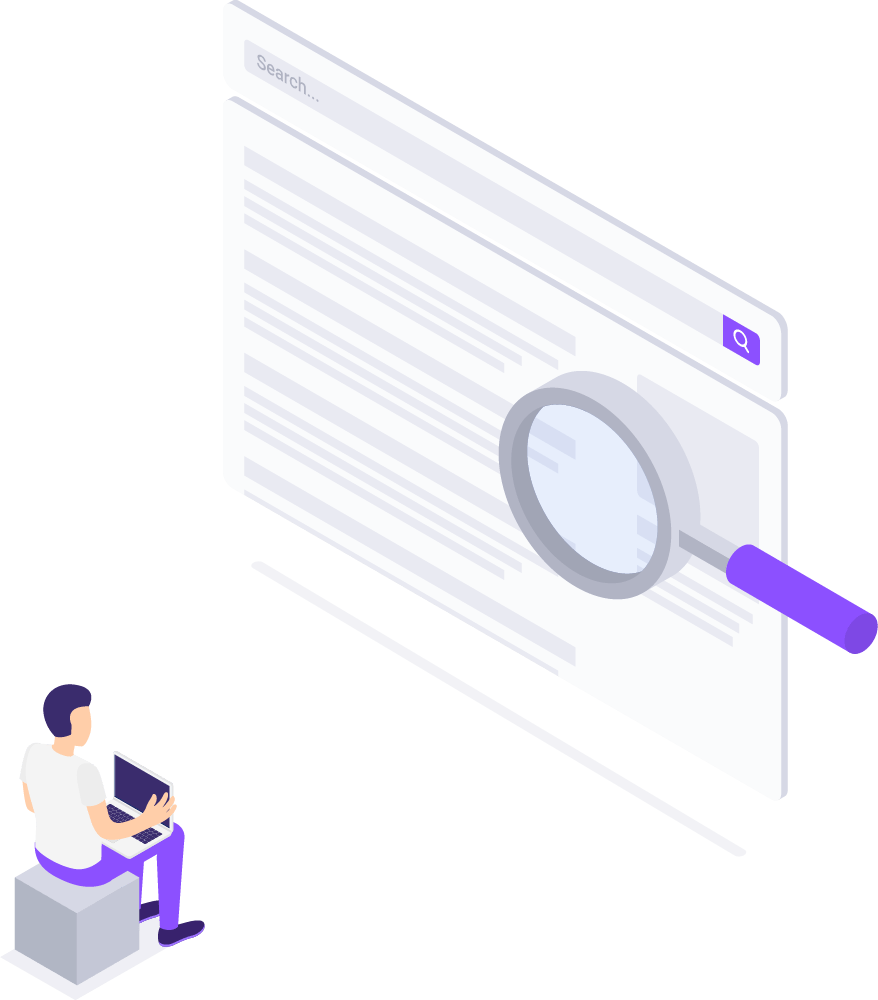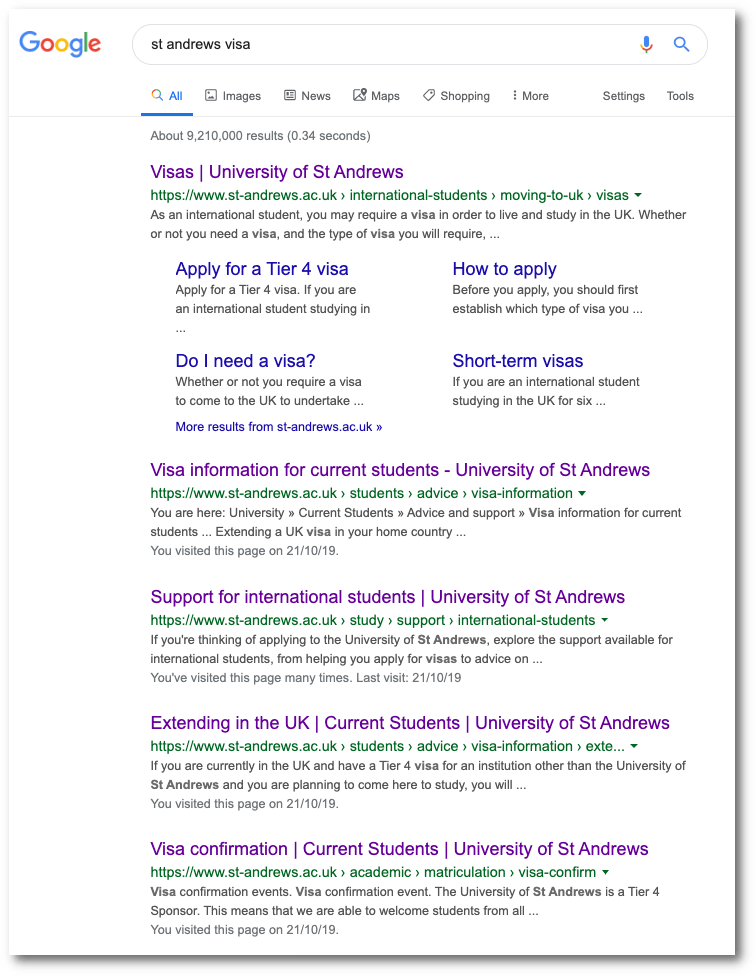E-A-T and search engine optimisation
Google regularly updates its core search algorithms to provide better search results for users. After a recent update, Google produced guidelines for web professionals on reassessing their content in light of these updates.
One of the guidelines Google uses to assess pages is called E-A-T, which stands for Expertise, Authoritativeness and Trustworthiness. Pages which excel in these three areas are likely to rank more highly in search results.
This post discusses some of the ways the University website can improve its E-A-T rankings.
 Start with high-quality content
Start with high-quality content
Google’s algorithms seek to “reward” pages which are user-driven. Content designed around helping user’s complete their task is considered high-quality by Google.
Some specific examples of ways to demonstrate high-quality content include the following:
Page titles and headings should clearly describe the page
This comes down to how scannable a page is. Users need to be able to see at a glance whether the page contains the information they are looking for.
Pages which have titles or headings that are misleading or don’t match the content on the page are undesirable for Google. Also, avoid clickbait headlines which lower your trustworthiness.
Provide specific and helpful information
Information provided on web pages should be specific enough that a user can successfully complete their task. Content which is vague or too general is not going to be counted as high-quality.
For example, simply stating that the University provides support for students is not going to be as effective as providing detailed information about all the different areas we provide support in (financial, emotional, academic, etc) along with information about how students can seek out this help.
Content should be user-friendly and error-free
Content which is riddled with spelling mistakes and broken links will drop down in page ranking. This is why every page should be checked by someone other than the author before going live. It should also be re-checked on a regular basis to make sure no errors have crept in (especially for broken links).
The University currently uses Siteimprove, a tool which helps us identify misspellings, broken links and accessibility issues across the whole website. The digital communications team also manually checks the external-facing pages on a regular basis to identify errors and make sure content is kept up to date.
In addition, content should be easy to understand. I’ve written before about using plain English to help pages rank higher in search engine results.
Be a credible source
As a public university, we have an easier time demonstrating our authority than other websites, but that doesn’t mean we shouldn’t work hard to establish ourselves as a trustworthy source.
Here are some ways to demonstrate credibility:
- Avoid marketese, a writing style which favours promotional, self-congratulatory and boastful language over technical and objective wording.
- Where applicable, back up your claims with evidence from credible sources.
- Never deceive or lie to users. For example, don’t claim that students on such-and-such undergraduate course will automatically be accepted to any postgraduate course they apply to when you can’t guarantee that.
- Make contact information specific and easy to find. Google favours page authors with authority. Unlike news or scientific articles, University pages typically don’t have a specific author to attribute the information to. However, we can make it very obvious to users who they could contact to find more information on that subject.
Avoid duplicating or overlapping information
A quick way to diminish your own authority is by having lots of duplicating or overlapping information across your site.
In an example given in a blog post on E-A-T changes, Livestrong.com was negatively hit by a Google update because they had too many articles on the same topic (they had 23,700 articles on “how much protein do I need”). The sheer volume of returns for this one key phrase meant that the articles were competing with themselves in the rankings, which caused Google to favour other sources (such as Healthline.com or Health.Harvard.edu) as more authoritative instead.
This is another good reason for the University website to avoid duplicating content (besides helping maintain information consistency and accuracy). At the moment, there are instances of overlapping content which we need to review. For example, we provide information about visa for international students in many different places:
- Support for international students
- Undergraduate apply page
- Current student advice and support pages
- Current student study abroad pages
- Current student academic matters page
- Orientation pages
- Collaboration and study abroad pages.
These pages are all competing with each other in Google ranks, and if you type in a search term like “St Andrews visa”, many pages with similar titles are returned, making it difficult for the user to know which one to choose.

Low quality pages affect the whole site
Low-quality content on some parts of a website can impact the whole site’s rankings. It is therefore important that we don’t ignore low-quality pages. We need to make sure all content meets web standards and user needs and that it is trustworthy and credible.
If you’re interested in learning how to write better web content, why not sign up for our next writing for the web course?
Resources
- Google Webmaster Central Blog
- E-A-T and SEO (Maria Haynes Consulting)
- Google Updates Quality Rater Guidelines Targeting E-A-T (The SEM Post)
- Leveraging E-A-T for SEO Success (Lily Ray, Path Interactive)
- Why E-A-T & Core Updates Will Change Your Content Approach (Fajr Muhammad, iPullrank)
- YMYL Pages: What are YMYL Google SEO Pages? (John Lincoln, Ignite Visibility)